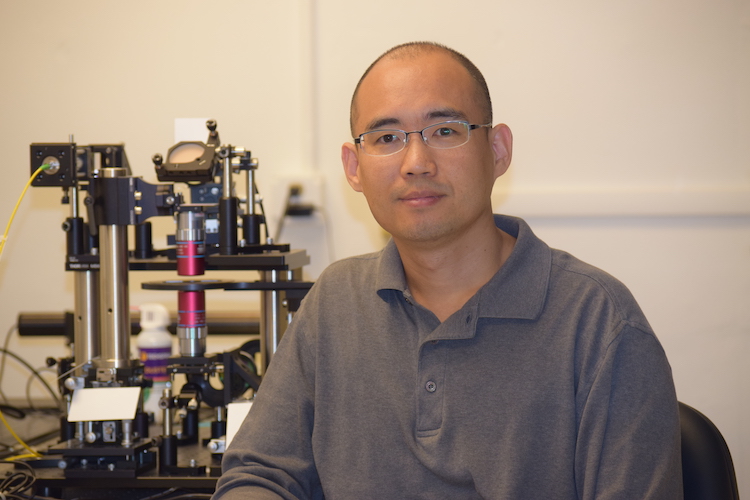The National Institutes of Health, through Massachusetts General Hospital, has awarded Yongjin Sung, associate professor, mechanical engineering and biomedical engineering, $45,000 for a study on the next generation of medical X-rays. Sung will work on a simulation framework for realistic, human-scale X-ray phase-contrast imaging (XPCI), and X-ray dark field imaging (XDFI).
XPCI and XDFI have been explored as next-generation X-ray imaging systems that could provide enhanced contrast for soft tissue. The technology would assist clinicians by allowing them to “see” more while exposing patients to significantly less radiation and reducing the need for toxic contrast-enhancing dyes such as iodine and barium required when imaging soft tissue.
Sung explains that both XPCI and XDFI measure the refraction and scattering of X-rays by soft tissues—measurements that are not captured using existing medical X-ray imaging.
Despite worldwide efforts to develop hardware, a numerical framework for human-scale simulation of XPCI and XDFI has been missing, Sung says. “This is largely due to the enormous computational power required for existing approaches,” he says. The two-year project will address this challenge.
Sung is working with Dr. Rajiv Gupta, who is a staff neuroradiologist and ER radiologist in the Department of Radiology at Massachusetts General Hospital, an associate professor of radiology at the Harvard Medical School, and a lecturer in Mechanical Engineering at MIT.
